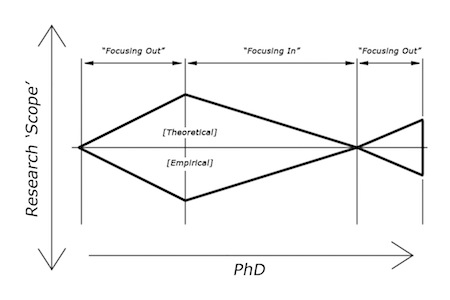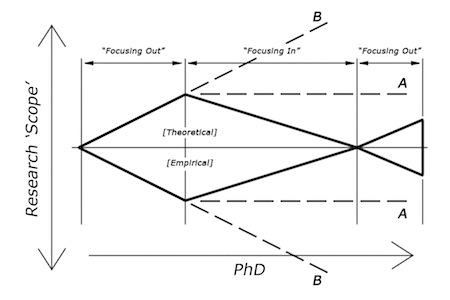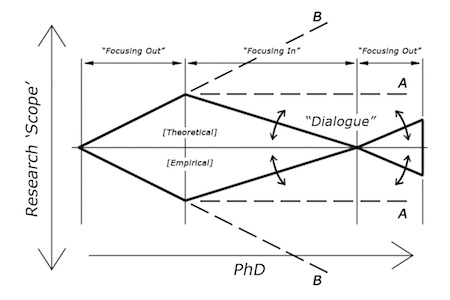Marathons and Mayonnaise: Digitally Mediating Academic Lifestyles
Tuesday, August 26th, 2014Many of us have developed sufficiently sophisticated media ‘literacies’ to recognise that TV programmes, magazines articles and advertising about cooking, interior design and other recreational pursuits rely heavily on a narrative of constructed lifestyles, often directly linked to key protagonists. So much so, that the term ‘lifestyle’ is often adopted as a catch-all to collectively describe the genre.
Whilst academics have no doubt discussed their recreational activities with colleagues for many years, through idle chat in university corridors or over conference lunches, we are the first generation using social media to partly do so in globally distributed environments. I’ve been thinking about how this emergent practice might be mediating ‘academic lifestyles’ and how it might be contributing to a (re)shaping of their cultural norms.
To be clear, the performative context I’m talking about here is not one based on formal (or indeed informal) academic achievement or professional status, but one which relates to public profiles and digital footprints that increasingly include lifestyle revelations beyond purely academic roles and activities. These provide an everyday insight into readily shared selves that are also becoming increasingly quantified. Some of us may even adopt a form of online ‘life laundering’ that is almost confessional, warts and all, and tags such as ‘micro-celebrities’ have been assigned, disparagingly and often uncritically, to relatively high-profile and high-volume users of social media, including some academics.
It is only natural that we annotate the sharing of aspects of our professional practice with recreational footnotes, such as the perks that go with travelling to overseas conferences. In addition, emergent ‘life hacking’ exercises – with their focus on tricks, shortcuts and skills to increase personal well-being and productivity – constitute an interesting and increasingly visible subset of academic ‘lifestyling.’ The way I see it, most forms of academic shared practice are not overtly prescriptive, dictatorial or self-promotional, but can be viewed as contributing to a wider communal resource from which others can make informed decisions about the usefulness and relevance of individual contributions. And whilst I’ve previously expressed concerns about the potential for cultural hegemony, most of these are motivated by genuinely altruistic instincts and ethics. But I’m increasingly aware how these can (consciously or unconsciously) involve the nurturing and (re)constructing of the self, often (re)affirming one’s social and cultural capital.
Academics are generally well versed in online identity management, and often at the forefront of advising students over digitally mediated threats to personal and professional reputations. Drunken Facebook photos and inappropriate tweets have become clichés of the genre. Most of us are content to adopt modest, balanced and guarded approaches to the way we present personal aspects of our lives and our recreational activities, whilst adhering to the expectations of professional conduct and confidentiality regarding aspects of our studies and work.
Further, many academics are self-effacing and self-depreciating online. There are plenty in my Twitter feed who admit to unproductive days, unhealthy eating and excessive bouts of procrastination. In doing so, we are reassured that they are presenting more rounded, authentic and honest personas. But how much might we admit to certain activities, personal traits and lifestyle choices to the point that we may consider it compromising professional reputation or career progression?
Instinctively, it doesn’t do us any harm to project ourselves as confident, fit, healthy, efficient, productive, socially well-connected and culturally rich individuals. Ok, it’s unlikely that anyone’s professional status will be significantly enhanced by accounts of running marathons or making their own mayonnaise. But do we run the risk of contributing to increasingly narrowly defined cultural norms of what constitutes ‘ideal’ scholars, creating academic lifestyles that are increasingly ritualised and consensual? Further, do these reinforce lifestyles associated with predominant academic demographics (you know, the usual suspects).
From the moment we enter university, we conform to social and cultural norms of behaviour and self-representation. Yet progression towards postgraduate and doctoral studies requires increasingly important work in establishing one’s own professional identity/ies. In comparison to many workplaces (and I’ve worked in quite a few), an academic environment remains a generally supportive and inclusive working environment; one that embraces diversity and is tolerant of multiple perspectives, even if, as some would argue, these values are being increasingly inhibited by neoliberal and managerialist agendas. Crucially, academics are also contributing to a wider sociocultural shift in scholarly discourse beyond core practices, highlighting – and indeed personalising – important issues related to the academic environment, such as mental health, everyday sexism and the precarity and exploitation of academic labour.
Digitally-mediated academic lifestyles increasingly constitute expressions of individuality and performativity that challenge existing work-life binaries, institutional roles and formal professional identities. We should ensure they remain authentic, diverse and inclusive.




